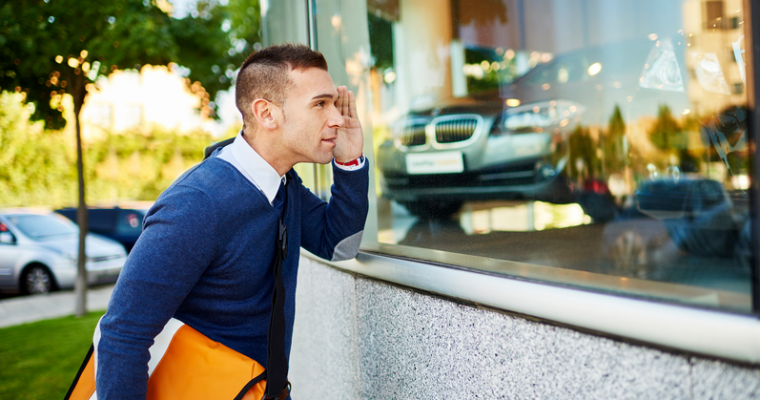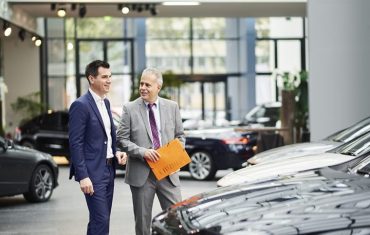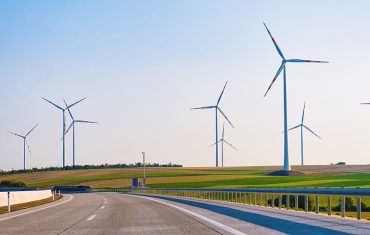
How COVID has forced car dealers to re-think
For driversThe COVID pandemic has had an impact on everyone, and every business, in different ways. But it hasn’t stopped Australians from wanting to buy a new car.
In fact, despite most of the population – and all of New South Wales and Victoria – being unable to travel anywhere at the moment, and global factors severely impacting production and supply of stock, new car sales are still driving forward.
So, what’s the story and how are car dealerships adapting to pandemic-related restrictions? Let’s take a look…
Sales bounce back
It has yet to be seen if harsher lockdown restrictions in New South Wales and Victoria that were introduced in August have had a significant impact on new car sales, but, according to figures released by the Federal Chamber of Automotive Industries (FCAI) issued to the end of July, Australians have been flocking back to the dealerships to purchase a new car.
More than 84,000 new cars were sold in July 2021, which is a 16.1 percent increase compared to the same period 12 months prior. So far in 2021, Australians have purchased 651,629 new vehicles (to the end of July) for a 26.5 percent year-to-date increase compared to 2020, which was the lowest annual total since 2003.
While admittedly still not at the record levels seen a few years ago, the FCAI says the numbers proves “the underlying strength, confidence and resilience in the market in spite of the challenges being presented due to lockdowns.”
A key factor is increasingly strong demand for recreational utes and SUVs, with both sectors up by more than 30 per cent compared to 2020.
“In some ways there has been a perfect storm with short supply resulting from the semiconductor delays, people not wanting to use public transport and making peace with the fact that their next holiday is likely to be a driving holiday in Australia,” said James Voortman, CEO of the Australian Automotive Dealer Association.
“We’ve also seen cash circulating around the economy, whether that has been early access to super or government incentives and payments and people with disposal income because they are not travelling overseas at the moment. Plus, we’ve had a housing boom in this country, and when you have a housing boom people feel pretty confident in their wealth. All of these factors have meant there has been a lot of demand for recreational-type vehicles.”
Short Supply
The supply issues that Voortman mentioned have largely been a result of a global shortage of semiconductors, the computing chips that are so critical to manage the comprehensive array of mechanical functions, conveniences, communications and safety features in modern cars.
The issue is a direct result of the impact COVID has had, creating a perfect storm. Firstly, supply for semiconductors was significantly stressed when major production facilities throughout Asia were forced to shut down as the pandemic first commenced. At the same time, as the world was temporarily locked down, demand skyrocketed for electronic devices such as televisions and gaming consoles for those without work and new computers and monitors for those setting-up home offices. Put simply, supply could not keep-up with the demand, and vehicle production levels were heavily impacted.
Wait lists
As a result, consumers willing to splash their cash on a brand-new car have been forced to wait, in some cases for more than nine months, to take delivery of their car.
That has created plenty of headaches for dealerships, and strained relationships with customers.
Voortman acknowledges the problem is an unavoidable consequence of the COVID pandemic, and admits some manufacturers are treating it better than others and consumers have become more patient and understanding of the situation with time.
“Every dealership will be different,” he told LeasePlan.
“What we’re hearing is that dealers are just trying to be as honest as possible and communicate effectively with their customers about any delays, and often that is difficult because they are providing a message to a customer from the manufacturer and, in many situations, that message changes.
“What we’re advising dealers to say to customers is that ‘we just don’t have certainty around the timing and that you might be waiting’.
“The car is the second-most expensive product you are likely to buy as a consumer and I think there is a level of understanding that, as a net importer, Australia is subject to production issues overseas.
“We’re just asking the dealers to communicate to them as much as possible.”
Cleaning up
Even if there weren’t stock shortages, COVID has presented plenty of hurdles for dealers to overcome in order to stay in business in and out of lockdowns.
For starters, they have had to implement clear COVID safe health guidelines within showrooms that ensure the safety of its staff and consumers, such as regularly disinfecting vehicles on display and following mandated guidelines on social distancing and contact tracing. As such, they have had to invest in expensive cleaning products within the showrooms and service departments that, in-line with reduced staff levels, has had an impact on how much time sales staff can interact with consumers.
“It’s cost us a fortune,” a prominent dealer principal told LeasePlan.
“We understand the importance of it, and we understand it affects all sectors of business, but our margins have been pretty skinny for a while, and it certainly has an impact on how we conduct our time with customers in the showroom, and the amount of time [sales staff] can spend with them.
With individual state governments issuing their own COVID rules and regulations, Voortman says it has been confusing for consumers – and dealerships – to understand what they can and cannot do in certain situations.
“There is no doubt in my mind that if we have a national set of guidelines in place it would be a lot simpler and clearer for both consumers and business operators to understand how it works, what they can and cannot do to get on with buying and selling cars safely,” he said.
“That lack of consistency with health orders around the various states means there is different assumptions being made. And that doesn’t help things.”
Going Digital
There are some elements of the car buying process that cannot be replicated in the digital age – such as test driving a vehicle to see if it suits your needs or lifestyle – but some innovative dealerships are experimenting on-line more and offering digital stepping stones to get you in a new car.
For example, a prominent Sydney dealership group is offering personalised virtual walkarounds of vehicles within its showrooms, with consumers booking time with sales staff that can answer questions directly and show them through the features in the car.
“We’re seeing a lot of up-take for this from people who are in the final stages of their research,” our dealer principal said.
“That way, we can show them around the vehicle safely. And when it comes time to committing to a test drive, they can simply concentrate on that aspect and there’s less contact, which is in-line with COVID protocols.
“We wish it was back to normal, like everybody else, but at the moment we have to work around it with some clever thinking.”
At the end of the process, there’s a convenient solution in place for those taking delivery of their vehicle with dealers able to implement contactless ‘click-and-collect’ processes.
“While that makes it easy, it does take away some of the personal touches we are able to provide when customers come to pick-up their new car,” our dealer principal added.
“That’s an important part of the relationship with our customers that has been compromised in this situation. But it is what it is at the moment. Hopefully we can get to making it feel like a really special experience again soon.”
If you need help planning for new lease cars for your business, or your next novated lease vehicle, contact LeasePlan for more information.
 Driving Insights
Driving Insights



